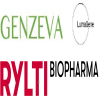Dive Brief:
- The key patent protecting Biogen's top-selling drug in the U.S. is now under review by trademark officials. Should they strike down the patent, about half of the big biotech's stateside revenue could be at risk.
- Rival drugmaker Mylan filed a petition last July with the U.S. Patent and Trade Office requesting an inter partes review (IPR) of patent '514, which covers a method of treatment for Biogen's Tecfidera through 2028. In a decision filed Feb. 6, the office concluded Mylan has a "reasonable likelihood of success" in proving at least one of the 20 claims in '514 is unpatentable, and therefore instituted an IPR.
- Tecfidera has been Biogen's biggest product since 2014 and last year posted $4.27 billion in sales, including $3.25 billion in the U.S. While the IPR could open the door to Tecfidera generics, analysts covering Biogen are bullish on the biotech's ability to defend its intellectual property.
Dive Insight:
With competition looming over its key growth driver Spinraza (nusinersen) and half of its late-stage pipeline aimed at the highly risky target of Alzheimer's disease, Biogen has found some stability in its multiple sclerosis business. There, the line-up of Tysabri (natalizumab), Tecfidera (dimethyl fumarate), and the interferon therapies Avonex and Plegridy raked in a little more than $26 billion for the big biotech over the last three years.
But even in its strongest therapeutic area, Biogen has been knocked back by headwinds. Tysabri, Tecfidera, and the company's interferon therapies each had year-over-year declines in U.S. revenue due to lower unit sales volume.
Tecfidera, at least, achieved a modest annual revenue growth because of a rest-of-world sales boost. Still, that boost wouldn't come close to offsetting the declines expected if copycat versions of Tecfidera hit the U.S. market.

The '514 patent is supposed to be a key defense against such an outcome. It covers through 2028 a method of treating multiple sclerosis patients where they receive 480 mg per day — deemed a "therapeutically effective amount" —of dimethyl fumarate, monomethyl fumarate or a combination of the two. The now-instituted IPR, however, will test how durable that defense is.
Biogen investors appeared perturbed by the threat to Tecfidera. Shares were down 3% by market's close Wednesday and fell about 2% further by late-morning Thursday.
Analysts, meanwhile, kept a cooler demeanor. Mizuho's Salim Syed cited historical data from the Patent Trial and Appeal Board — the body within the U.S. Patent Trademark Office that handles IPRs — that suggest Biogen has a 31% chance of losing the IPR. He noted too Biogen's successful history in defending the intellectual property in '514.
"Taking this into consideration, one could argue the chance of [Biogen] losing here is less than 31%," Syed wrote in a Feb. 6 investor note.
The '514 patent also holds 20 claims, all of which Mylan would have to get overturned. Evercore ISI's Umer Raffat argues the claims pertaining to the 480 mg dose may be particularly difficult to knock down, given how Mylan needs to prove that dose was an obvious choice to test in Phase 3 trials after 360 mg and 720 mg doses were tested in Phase 2.
"Whether 360 mg was an efficacious dose as per [Phase 2] results is THE key issue in this IPR … and even the judge says that," Raffat wrote in a Feb. 6 note. "For the generic to win, it has to prove that 360 mg was active also in [Phase 2]."
Raffat doesn't see that happening, both because the 360 mg dose didn't show statistical significance in mid-stage testing and because the 480 mg showed "unexpected efficacy" in late-stage testing. Ergo, "this IPR is NOT as big a deal as some may fear."
A final decision from the Patent Trial and Appeal Board, the body within the U.S. Patent Trademark Office that handles IPR, should come in early 2020.














